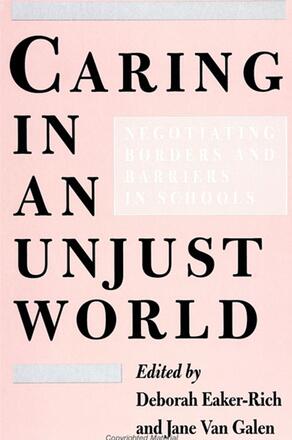
Caring in an Unjust World
Negotiating Borders and Barriers in Schools
Alternative formats available from:
Looks at the ways in which social structures and relationships within schools define, enable, or constrain an ethic of caring, especially for historically marginalized groups of students.
Description
The contributors to this book tap into an important, but largely unexamined perspective: examining how social structures and relationships within schools help to define, enable, or constrain an ethic of care.
This sociological, critical perspective is used to examine K–12 schooling, focusing upon grounded qualitative studies of student groups currently and/or historically considered marginal or for whom school presents significant barriers (i. e., African Americans and Hispanics; gays and lesbians; and women). The authors have grappled with the difficulties and opportunities presented by considering multiple perspectives of caring and what that means to those living within schools.
Deborah Eaker-Rich is Assistant Professor in the Department of Educational Leadership at North Carolina State University. Jane A. Van Galen is Associate Professor and Program Director in the Education Program at The University of Washington at Bothell. She is coeditor of Home Schooling: Political, Historical, and Pedagogical Perspectives.
Reviews
"The topics covered in this book are crucial to the viability of the care ethic as a teaching ethic and as part of an institutional ethic. Unless educators can perceive a practical application of caring to dealing with the range of individuals, groups, and communities they work with, the care ethic remains a kind of hothouse flower, living only in singular relationships protected from most of the world. " — Stefan J. Broidy, Southwest Missouri State University
"What is of particular value in these essays, is the questions of caring that the authors engage in, first of themselves in their respective relationships, and then of the institutions. It is a shift from what is assumed to what is learned and reflected upon in experience. Also of value is the willingness to look deeper and try to gain a better understanding of the complexity of care—peeling away all the personal, societal, and institutionalized layers. " — Susan T. Danin, Research for Better Schools